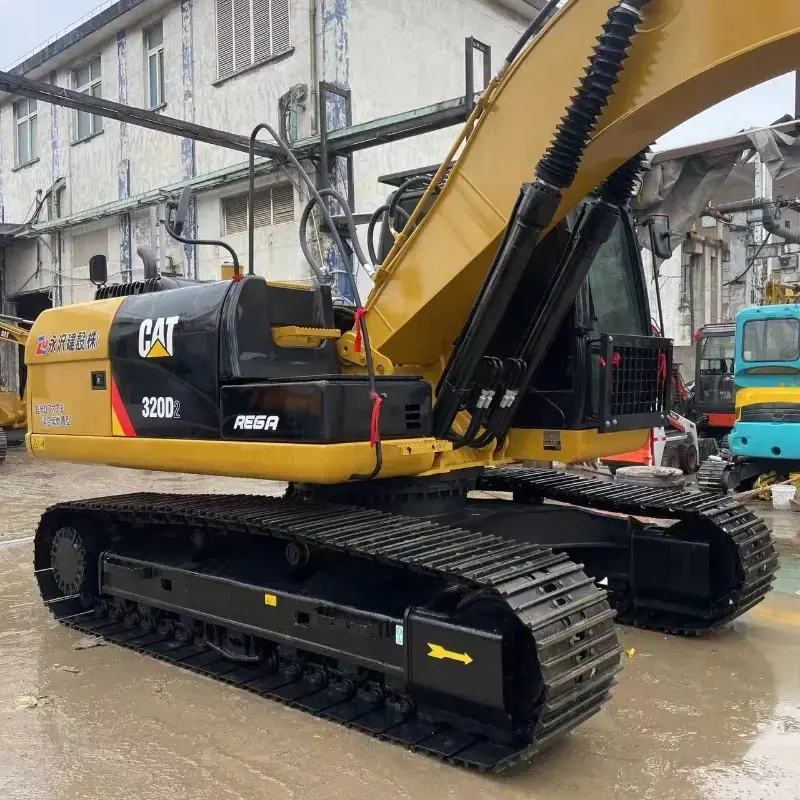When it comes to heavy machinery like excavators, understanding fuel consumption is paramount. Fuel costs can significantly impact the overall operational expenses of construction projects and other industrial activities. In this article, we will delve into the fuel consumption of a used Caterpillar 320D2 Excavator, exploring its features, factors affecting fuel efficiency, real-world consumption data, and tips for improving efficiency.
Overview of the Caterpillar 320D2 Excavator
The Caterpillar 320D2 Ekskavatör is a versatile and powerful machine designed to tackle a wide range of excavation tasks. With a robust engine power, typically around 121 horsepower, this excavator boasts impressive performance capabilities. Its operating weight varies depending on configuration but typically falls within the range of 21 to 24 metric tons. The bucket capacity ranges from 0.93 to 1.6 cubic meters, enabling efficient material handling and loading operations.
Fuel Efficiency Features
Caterpillar is renowned for integrating cutting-edge technologies to enhance fuel efficiency in its machinery, and the 320D2 Excavator is no exception. Advanced fuel injection systems ensure precise fuel delivery, optimizing combustion efficiency and minimizing wastage. Engine optimization techniques, such as variable speed control and automatic idle features, further contribute to reduced fuel consumption. Additionally, eco modes are available to tailor performance settings for maximum efficiency in various operating conditions.
Factors Affecting Fuel Consumption
Several factors influence the fuel consumption of the Caterpillar 320D2 Excavator. Operating conditions play a significant role, with fuel consumption typically increasing under heavy load or in challenging terrain. Maintenance practices also impact efficiency, as proper upkeep ensures optimal engine performance and fuel utilization. Moreover, external factors like ambient temperature and altitude can affect fuel efficiency, requiring adjustments to operational parameters.
Real-world Fuel Consumption Data
Real-world fuel consumption data provides valuable insights into the practical efficiency of the Caterpillar 320D2 Excavator. In typical operating scenarios, fuel consumption rates range from 8 to 12 gallons per hour, depending on workload and conditions. Comparative analysis with other excavator models in its class demonstrates the competitive fuel efficiency of the 320D2, making it a cost-effective choice for contractors and operators.
Tips for Improving Fuel Efficiency
To maximize fuel efficiency and minimize operating costs, operators can implement several strategies. Regular maintenance checks, including air filter cleaning and engine tuning, ensure peak performance and optimal fuel utilization. Adopting efficient operating techniques, such as smooth throttle control and minimizing idle time, conserves fuel during operation. Furthermore, leveraging eco-friendly features and technologies, such as automatic engine shutdown and energy-saving modes, further enhances efficiency and reduces environmental impact.
The best Used Caterpillar 320D2 Excavator in 2024
If you want to get a high-quality İkinci El Caterpillar 320D2 Ekskavatör, but don't know how to choose, you might as well try jieente. As a professional Used Caterpillar 320D2 Excavator manufacturer, jieente can provide you with high-quality products and services. Welcome to contact us for detailed ordering information and services!
In conclusion, understanding fuel consumption is essential for maximizing productivity and profitability in heavy machinery operations. The Caterpillar 320D2 Excavator, with its innovative fuel efficiency features and robust performance capabilities, offers a compelling solution for contractors seeking cost-effective excavation solutions. By implementing the tips outlined in this article and leveraging the fuel-saving technologies inherent in the 320D2, operators can optimize efficiency, reduce fuel costs, and contribute to sustainable operations in the construction industry.

